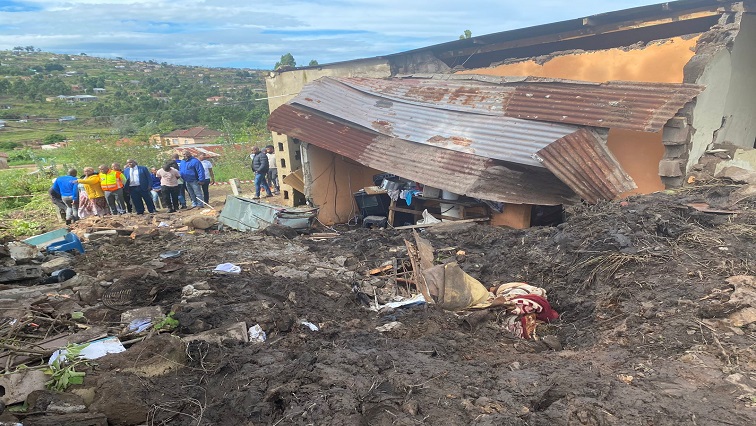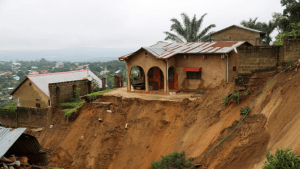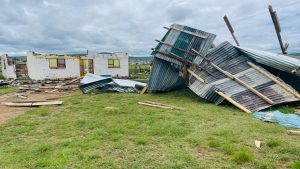A group of experts from various fields are calling on government to take a multi-disciplinary approach to mitigate the impact of climate change.
The appeal was sounded during a webinar by the University of KwaZulu-Natal, looking at the impact of the floods on urbanisation and the vulnerability of communities.
The floods in KwaZulu-Natal, that largely affected eThekwini and surrounds, claimed over 400 lives.
It destroyed businesses, roads and homes. Thousands have been displaced.
The University of KwaZulu-Natal has now started a discussion around this, bringing together researchers, NGOs, affected people, and climate specialists.
Bobby Peek, Director of Groundwork, a non-profit environmental justice organisation based in Durban, has highlighted the plight of vulnerable communities who have lost their homes, calling for housing units that are more resilient.
He says, “We need a short-term plan to tackle hotspots, but we needed 10 to 30-year plan to re-engineer the city. We need to build a resilient city. We need independent expertise to come in at to look at this again. So, how do we develop a new city, a resilient city and we need to recognise that the settlement patterns in Durban are wrong for our townships and fancy Ballito apartments are built in the wrong places. So, we need to rethink our settlements in Durban.”
Safe spaces
The founder of shack dwellers movement, Abahlali baseMjondolo, Sbu Zikode says they’re appealing to government to allocate safe spaces for people who have been displaced.
Zikode says, “There must be a rapid land release, urban land especially for decent housing in our cities … right now, when we are trying to assist the communities the question that people are asking is, where do we go from here? Where do we build? Even if you are providing them with building material to rebuild their homes, the question is, but where do we build? You can no longer hold back and build where we have lost our loved ones.”
A PhD Candidate in Disaster Management at the University of KwaZulu-Natal, Tashmica Sharma, spoke to the broader climate change conversation, saying that the private sector must work to minimise their greenhouse emissions.
Sharma says, “We want to see a very great presence of the public sector community-based organisations, faith-based organisations, civil society organisations coming on board into disaster management plan. We should be changing the school curriculum. Why isn’t Life Orientation not taught things about environmental justice, subsistence farming, value of the environment, private sector. We need to call out the private sector to be changing their ways challenging them to meet their economic objectives with the least environmental impact.”
The second in this two-part webinar series is expected to focus on relief measures and building resilient communities to withstand climate change.
VIDEO: Government says relief effort are improving in KwaZulu-Natal:






